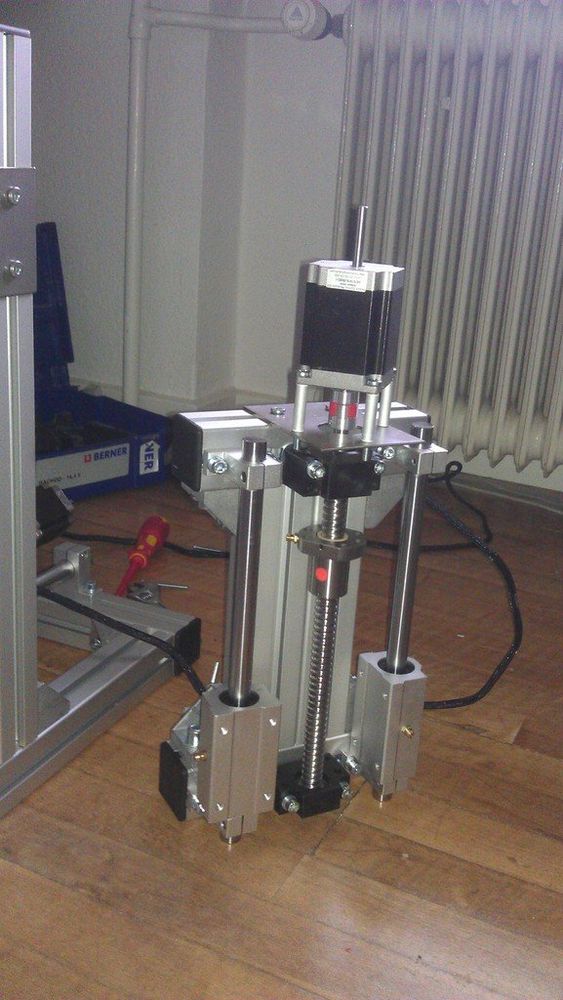In the ever-evolving landscape of healthcare, precision medicine stands out as a beacon of hope, offering a personalized approach to diagnosis, treatment, and prevention. This article delves into the key concepts, applications, and technological innovations driving the precision medicine era, showcasing the transformative impact it holds for patients and healthcare providers alike.
Introduction to Precision Medicine
Precision medicine, also known as personalized medicine, represents a paradigm shift in healthcare, moving away from the CNC turning tools traditional one-size-fits-all approach towards a more targeted and individualized model. By considering each patient’s unique genetic makeup, lifestyle, and environmental factors, precision medicine aims to optimize treatment outcomes and minimize adverse effects.
Key Concepts of Precision Medicine
At the core of precision medicine are three key concepts:
Genetic Testing and Analysis
Genetic testing allows healthcare providers to analyze an individual’s DNA for specific variations associated with disease risk, drug response, and treatment outcomes. This information provides insights into personalized treatment strategies tailored to each patient’s genetic profile.
Personalized Treatment Plans
Based on the results of genetic testing and comprehensive health assessments, personalized treatment plans are developed to address the unique needs of each patient. These may include targeted therapies, lifestyle modifications, and preventive measures aimed at optimizing health outcomes.
Data Analytics and Machine Learning
Advancements in data analytics and machine learning play a crucial role in precision medicine by enabling the analysis of vast amounts of patient data to identify patterns, trends, and predictive biomarkers. This facilitates more accurate diagnosis, prognosis, and treatment selection.
Applications of Precision Medicine
Precision medicine has diverse applications across various medical specialties, including:
Oncology
In oncology, precision medicine has revolutionized cancer care by enabling the identification of specific genetic mutations driving tumor growth. This has led to the development of targeted therapies that selectively target cancer cells while sparing healthy tissues, resulting in improved treatment outcomes and reduced side effects.
Pharmacogenomics
Pharmacogenomics focuses on how genetic variations influence an individual’s response to medications. By understanding genetic factors that affect drug metabolism and efficacy, healthcare providers can prescribe medications at optimal doses and avoid adverse reactions, leading to safer and more effective treatment regimens.
Rare Diseases
Precision medicine offers hope for individuals with rare and genetic disorders by facilitating accurate diagnosis and targeted therapies. Through collaborative efforts between researchers, clinicians, and patient advocacy groups, precision medicine has transformed the landscape of rare disease management, offering personalized solutions where conventional approaches have fallen short.
Technological Innovations in Precision Medicine
The precision medicine era has been fueled by technological innovations, including:
Genomic Sequencing Technologies
Next-generation sequencing technologies have revolutionized the field of genomics, enabling rapid and cost-effective analysis of DNA, RNA, and proteins. Whole genome sequencing provides a comprehensive view of an individual’s genetic makeup, while targeted sequencing focuses on specific regions of interest associated with disease susceptibility or drug response.
Bioinformatics and Big Data Analytics
Bioinformatics plays a crucial role in analyzing and interpreting the vast amounts of data generated by genomic sequencing and other precision medicine technologies. Machine learning algorithms enhance the predictive power of bioinformatics models, enabling more accurate and personalized healthcare interventions.
Digital Health Solutions
Digital health solutions, such as wearable devices, mobile applications, and telemedicine platforms, are transforming patient care by enabling remote monitoring, real-time data collection, and virtual consultations. These technologies facilitate continuous monitoring of health parameters, early detection of disease progression, and timely intervention, enhancing patient engagement and improving clinical outcomes.
Breakthroughs and Success Stories
The precision medicine era has witnessed numerous breakthroughs and success stories, exemplifying its transformative impact on patient outcomes and healthcare delivery. From personalized cancer therapies to rare disease treatments, these examples underscore the tangible benefits of precision medicine in real-world settings.
Challenges and Limitations
Despite its potential benefits, precision medicine faces several challenges, including:
Cost and Accessibility
The high cost of genetic testing and personalized treatments poses a significant barrier to widespread adoption, limiting access for underserved populations and exacerbating healthcare disparities.
Ethical Considerations
Ethical implications surrounding informed consent, data privacy, and equitable access require careful consideration to uphold patient autonomy and trust in the healthcare system.
Regulatory Hurdles
Regulatory frameworks governing the development and approval of precision medicine technologies must strike a balance between ensuring safety and efficacy while promoting innovation and timely access to breakthrough therapies.
Future Directions and Emerging Trends
Looking ahead, the future of precision medicine is bright, with ongoing advancements in technology, integration with telemedicine, and global initiatives driving innovation and collaboration. By harnessing the power of precision medicine, we can unlock new insights into disease mechanisms, develop more effective treatments, and improve healthcare outcomes for individuals worldwide.
Conclusion
The precision medicine era heralds a new dawn in healthcare, marked by innovations and breakthroughs that hold the promise of personalized and effective treatments for patients. By embracing technological advancements, addressing challenges, and fostering collaboration, we can harness the transformative potential of precision medicine to usher in a healthier and more equitable future for all.

